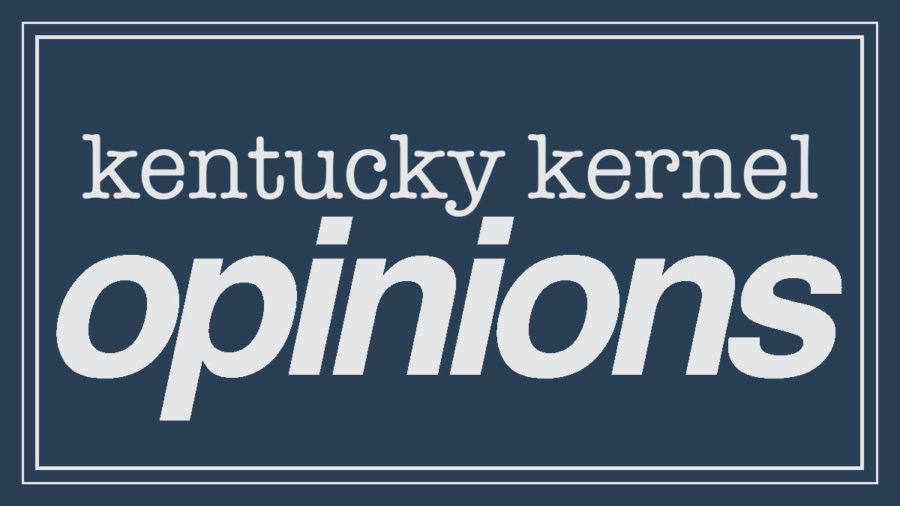Kaitlin Bennett’s real problem isn’t her controversial opinions. It’s her journalism ethics.
January 21, 2020
Kaitlin Bennett, self-titled “Kent State gun girl” and “conservative journalist,” recently visited campus to talk about whether resources such as pads, tampons and urinals should be provided in public restrooms for members of the transgender community. In my opinion, the way she conducted herself during the interviews was unethical journalism.
After Twitter user @LilithLovett posted a thread of several UK students’ responses to Bennett, calling them “kings,” Bennett’s interview footage went viral on Twitter. Many Twitter and TikTok users have shared Lovett’s praise of the UK students, as well as criticized Bennett’s biased interview style.
The thread has since been deleted, allegedly due to complaints by libertarian media outlet Liberty Hangout. Their spokesperson, Bennett, travels to college campuses across the United States to interview students about issues concerning guns, the LGBTQ+ community, censorship and “fake news.”
The full 20 minute interview video, titled “College Students Have No Morals,” can still be found on Liberty Hangout’s website.
In the video, Bennett is anything but objective. She uses a snarky tone and makes dismissive comments that imply that the interviewees’ opinions are wrong when they disagree with Bennett’s personal opinions. For example, when one student says that they approve of putting tampons and pads in the men’s restroom, as well as urinals in the women’s restroom, Bennett replies in a condescending tone, asking, “you don’t see anything wrong with those statements?”
She also asks leading questions such as “should we reinforce (men having periods) and say it’s okay, or should we say whoa, you’re not really a woman, come on?” This question shows clear bias in its flippant and insulting wording. She makes it obvious that the only “correct” answer is the latter option. Ethically, journalists should make their sources feel comfortable sharing their true opinion, even if it’s contrary to their personal stance. If interviewees feel judged by or are being fed misinformation by their interviewer, they are less likely to give their sincere opinion. The effect of this could invalidate an entire story.
Lastly, Bennett asks students intentionally misleading questions such as “did you tell them to seek medical help if men are having periods?” This makes it appear as though she either doesn’t fully understand the subject matter she is covering or is purposely feigning ignorance to make the interviewee feel dumb.
If Bennett wants to call herself a journalist, these actions are unacceptable.
As a private citizen in America, she is allowed to hold controversial opinions and share them. It’s her First Amendment right. However, that right is suspended as soon as she begins working in her journalism capacity in public.
“Conservative journalist” is an oxymoron—or at least it should be. One can be a journalist and have pronounced political beliefs, but separately. News sources like CNN and FOX News seem to contradict that statement, and that’s exactly the problem. News organizations are falling prey to polarization in their struggle to remain relevant. After all, news organizations are businesses too, and bias makes money.
However, one of the core tenets of journalism is that bias, real or perceived, is not acceptable. Professional journalists have stringent rules to avoid these perceived biases. For example, they often cannot show support for any political candidate or party, whether through a bumper sticker, yard sign or interaction on social media. They cannot cover news stories on which they have written an opinion piece.
These and many other rules are in place to maintain the credibility of their reporting; readers are more likely to call “fake news” on stories that they don’t like if they know the journalist’s personal biases don’t match up with theirs.
Bennett’s notoriety may make it difficult to escape perceived bias. However, that doesn’t give her free license to show blatant bias in her capacity as a journalist. Interviewees may feel pressure to answer in a certain way to avoid being shamed by Bennett, and that is not okay.
In my opinion, Bennett is a microcosm of the much larger problem in today’s journalism and media environment. She is a byproduct of the culture that biased news organizations have created, and she gives journalism a bad name.































































































































































